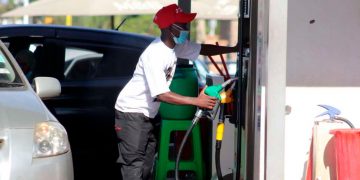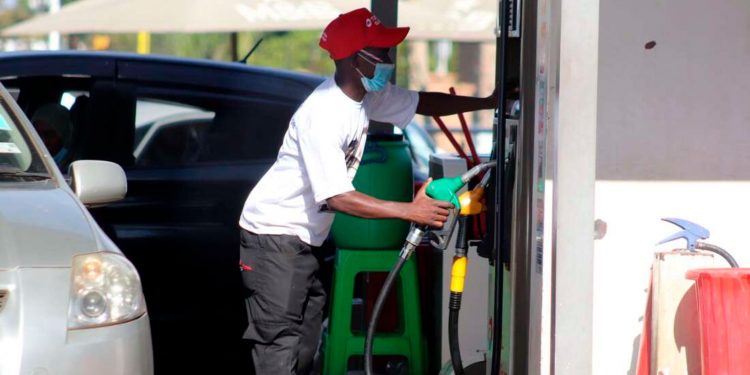Anger is brooding among Kenyans, as petrol prices will from midnight Wednesday, increase to highest level in the nation’s history amid rising crude oil costs.
According to Kenya’s Energy and Petroleum Regulatory Authority, EPRA, petrol will increase by Sh4.30 to Sh127.11 per litre in Nairobi, while diesel is expected to rise from Sh107.66 to Sh109.96—the highest level since December 2018.
This implies that petrol prices will have increased by Sh20.12 a litre over the past three months, with diesel up Sh13.56 over the same period, one of the biggest jumps over the period in recent history.
While the rise in petrol price will further unleash pricing pressure across the economy and having ramifications on the cost of living measure, it has shifted the spotlight on taxation of petroleum products, with Kenyans in border towns reportedly seeking cheaper fuel in the neighbouring countries like Tanzania and Uganda.
The EPRA has linked the expensive fuel to the recovery in crude oil prices. The current pump prices are based on the barrel at $61.61, up from $55.27 previously, and $65.41 for the review that kicks off midnight.
“We need to look at the taxes. As a committee we will propose changes to the Finance Bill for the new budget. The onus is on Parliament now to sit and look at the levies and taxes critically,” said David Gikaria, chairman of the National Assembly Energy committee.
The Finance Bill is the legal instrument that the Treasury and Parliament use to introduce new taxes and scrap or lower existing taxes. The changes have a significant weight on the pricing of consumer products and services.
Majority of the population in Kenya rely on kerosene and gas for lighting and cooking, making crude price a key determinant of the rate of inflation.
In February this year, kerosene prices rose to Sh97.85 in the capital city, up from Sh92.44, reflecting a Sh5.41 rise. It is expected to increase by Sh3.60.
The nation also uses diesel for transportation, power generation and running of agricultural machinery such as tractors, with a direct impact on the cost of farm produce.
In June last year, a litre of diesel was retailing at Sh74.57 in Nairobi and petrol at Sh89.10, just as inflation rose to an 11-month high in March this year on the back of increased cost of transportation, fuel and basic foodstuffs, the Kenya National Bureau of Statistics said on Wednesday.
While demand for oil is still lower than normal, there are hopes of a speedier than expected economic recovery as vaccines are rolled out.
It would be recalled that crude oil prices plunged after a fallout between Saudi Arabia and Russia over production cuts in the wake of the Covid-19 pandemic, which has also reduced demand for energy on slow economic activities.




































